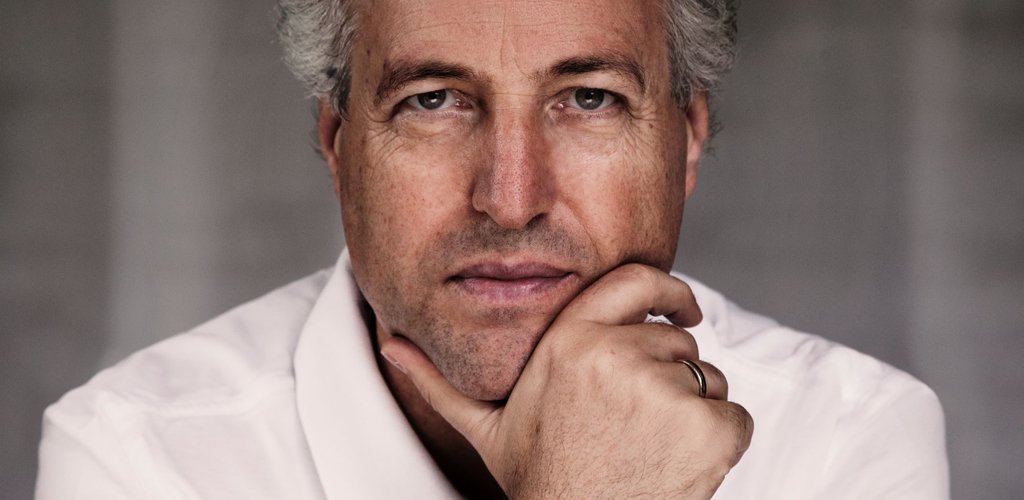The season's second Mozart-Haydn concert will feature a compatriot of the Viennese masters, Manfred Honeck, leading the Budapest Festival Orchestra. Honeck is not only the honorary conductor of the Bamberg Symphony, but has also been serving as the music director of the Pittsburgh Symphony Orchestra for over a decade and a half. We spoke with him about the commonalities between the two classical composers and where they differ.
Júlia Váradi: Mr. Honeck, the musicians of the Budapest Festival Orchestra are excited about their next Haydn-Mozart concert. When you last led them, they had a great time with you, as I am sure you are aware. How are you preparing for the upcoming performance?
Manfred Honeck: It is such a joy for me to return to Budapest; I always enjoy conducting the musicians of the BFO. Most recently, the program included Verdi and Tchaikovsky, but this time, we have something very different in store, not more Romantic pieces. Haydn and Mozart are very important composers for me.
J. V.: What makes this concert unique? How should we, the audience, prepare, and to what should we be paying special attention?
M.H.: It is well known that Mozart and Haydn were a little like brothers. Despite their significant age difference, they were very close to one another in terms of music. Haydn far outlived Mozart, who died at a young age but produced so much in his short life. It was Haydn who, so to speak, laid the foundations of classical music. This is what Mozart and Beethoven used to build their own musical oeuvres on - the interesting combination which in Austria is stylistically linked with the concepts of classicism and classical music. Concepts like what a symphony should be like, or what a complete concerto should be like. They relied on their own creative spirits when composing, and it is instantly recognizable that they found the mark in their compositions, which are very personal and exhibit an extraordinarily high quality at the same time.
But they also composed music when commissioned for special events or for their friends. One such example is the concerto we will perform at the concert, composed for the clarinetist Stadler. Whatever event a piece was written for, the composition always reflected a great deal of intellectual prowess, and the composers always consciously confined themselves to a particular composition structure. At the same time, it is always clear that the music was written for the people. In other words, they invented melodies and they knew how to reach and touch people's hearts. Haydn, for instance, with his unique humor, had a particular knack for this. Musically he was able to place himself perfectly in a particular situation, and had the ability to express how people experience dramatic feelings, pain, happiness, love and joy. All of this is clearly apparent in his melodies.
J. V.: Mozart's well-known humor perhaps diverged from Haydn's. They were not the same age, and the majority of Haydn's pieces were composed much earlier. How would you describe the friendship of these two different characters?
M.H.: They would often share a table at one inn or another, and would enjoy not only the food, but also their conversation about music. One important difference between the two men was that - although Haydn also composed excellent operas - Mozart was most at home in the genre of the opera; today, Haydn is known primarily for his oratories and symphonies. This is noteworthy because the two composers had different approaches to their incredible skill for understanding people and for expressing human emotions through music.
Mozart thoroughly integrated these emotions into his operatic world. This is why I believe many of his symphonies and concertos can and should be listened to from the approach of opera. There are certain shared areas, and orchestral situations in his symphonies which we also find in his operas. I always find these deeply moving.
J. V.: The concert will feature Haydn’s Symphony in D-major, followed by Mozart’s Clarinet Concerto in A major, with the solo performed by internationally acclaimed clarinetist Michael Rusinek, who originally hails from Toronto. As the conductor of the Pittsburgh Symphony, you must be very familiar with him from the orchestra. What can you tell us about him?
M.H.: Michael Rusinek is an exceptionally gifted clarinetist; his incredible sense for sound is coupled with outstanding technique. He is very much able to share with the audience what we have just discussed: that is, everything which should be felt in an opera, and everything which is important in Mozart and particularly in the clarinet concerto. This requires incredible empathy - the kind of empathy he has. And, of course, in terms of technique, he is able to play anything. The sound he brings out from his instrument is truly outstanding, and highly sensitive. I believe he delivers one of the most beautiful sounds in the world today. This is why I recommended him specifically as the soloist for this concert.
For each of the three pieces, and in general, we must strive to ensure that the spotlight always stays on the composer. It makes almost no difference who is conducting and who is performing. What matters is that we find the voice Mozart demands: the pitch, the clarity, the intonation and the rhythm. As the conductor, I will be focused on ensuring that the Mozart component remains at the forefront. I believe that with an outstanding orchestra, this is always possible. The Budapest Festival Orchestra is, so to speak, destined to succeed at this.
